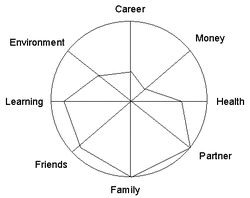Despite this advice coming from one of my favorite movie franchises, I have also heard similar advice said by many success coaches. I agree with the idea that trying something may not be as powerful as committing yourself to actually doing something.
How about when you commit yourself to doing something, you allow yourself the possibility that this doing does not have to be permanent. You can allow yourself to do it on a trial basis. There is no reason for you to get overwhelmed about making some big life change, you can just take small trial changes.
Think about how some businesses market their products. I have seen many products and services that are marketed with a 30 day money back guarantee, or even longer. How about services that offer a low price for the first month to allow you to try them out? The idea of the money back guarantee and low introductory price is to overcome a buyer's natural reluctance to try something new.
It is part human nature to be cautious about changes, even if they will benefit us. Businesses realize this and try and come up with methods to allow us to try their services in the hopes that once we try it we will keep purchasing their product. You can use the same idea on yourself. If you want to develop a new habit, give yourself some very small action that will reinforce that habit and decide to take that action for a period of 30 days.
For example, if you want to write a blog, you can commit to writing in your blog at least 3-5 days per week for 30 days. After dong this for 30 days, you can decide if you want to continue or not. If after 30 days, you see positive results from your trial, you can decide to extend the trial for another 60 or 90 days. It is also possible that you decide after the trial period that you want to do something else.
So, it is true that we must take action and do something, it does not have to be a permanent change. Let yourself do some trials and let me know how it works for you.



 RSS Feed
RSS Feed